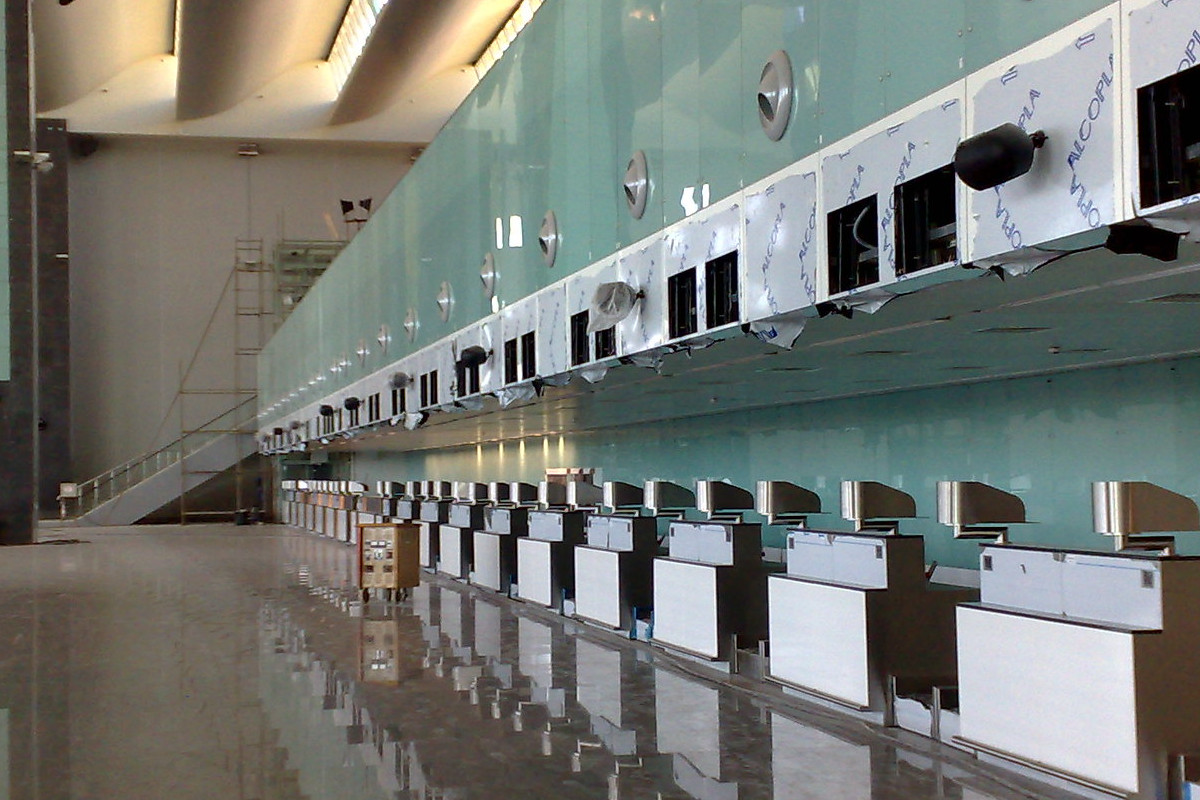EU: Tracking the Pact: Council documents on coordination of externalisation, "partnerships" and Afghanistan
Topic
Country/Region
04 June 2021
Three Council documents on the EU Pact on Migration and Asylum's externalisation aspects, covering: how to establish better EU-national coordination on externalisation of migration control; how to implement comprehensive "partnerships" on migration with priority countries; and a more detailed overview on relations on migration with Afghanistan.
Support our work: become a Friend of Statewatch from as little as £1/€1 per month.

The documents will inform discussions at the Justice and Home Affairs Council taking place next week, on 7 and 8 June.
The agenda features a number of discussions on migration and border control issues.
Coordination mechanism for externalisation
NOTE from: Presidency to: Coordination mechanism – External dimension of the Pact on Migration and Asylum - Discussion paper (Council document 8539/21, LIMITE, 20 May 2021, pdf):
"With the aim of increasing coordination, regular information sharing amongst EU actors should focus on:
-
- Key achievements and overall assessment of the migration partnerships;
- Way forward, with tangible next steps including concrete objectives;
- measures/initiatives to guarantee full coherence of EU and Member States actions, and a better understanding of the measures necessary to improve the management of migratory flows.
2. Way forward
Improving the cooperation with partner countries must continue to be a priority through the establishment of new partnerships and the reinforcement of the existing ones. The majority of Member States consider SCIFA and the HLWG as the main fora to enhance coordination of migration with the Commission and EEAS, whilst staying fully informed of the implementation of these priorities, including the state of play of operational cooperation.
In this regard, the Presidency invites Member States to discuss enhanced coordination to advance the EU’s external migration policy."
Comprehensive "partnerships" with third countries on migration
NOTE from: Presidency to: Delegations: Follow-up to the Jumbo Meeting: Way ahead for the strengthening of comprehensive partnerships with key partner countries (Council document 8952/21, LIMITE, 25 May 2021, pdf, emphasis added):
"In order to keep the political momentum for investing more robustly in the external dimension, and to focus on further operationalisation of the migration partnerships, the Presidency is identifying countries of origin and transit with which EU engagement should be further intensified, as indicated by Member States. This exercise is intended and should be perceived as a positive effort to strengthen cooperation with partner countries. Based on the concrete positions of Member States in the last HLWG meeting, the following countries were considered a priority, within their regions, by a large number of Member States: Tunisia, Morocco, Libya, Somalia, Nigeria, Sudan, Bosnia and Herzegovina, Turkey, Afghanistan and Iraq. Since Member States identified a wide range of countries, a broad consensus is being sought to continue the process. The further operationalisation of partnerships with other countries will nevertheless continue.
Taking into account current challenges, the relevance of migration flows towards Europe and the potential for expanding existing cooperation on all relevant aspects of migration policy, the indicative outline should include a timeline, whenever possible, and an indication of which instruments – and in what order – should be implemented to give substance to the partnerships. It should include, where relevant, the contributions made by individual Member States to specific partnerships, on the basis of information the Member States are strongly encouraged to provide. This course of action will be discussed in future meetings of the Working Party on External Aspects of Asylum and Migration (EMWP)."
Cooperation with Afghanistan
NOTE from: Presidency to: Delegations: Implementing the Pact - strengthening comprehensive migration partnerships with priority countries: - Afghanistan (Council document 8953/21, LIMITE, 25 May 2021, pdf)
The obsession with returns is evident, it being the second issue raised in the document, following an introduction focusing on "illegal arrival" (emphasis added):
"Afghanistan has continued to seek opportunities for bilateral labour mobility channels with its neighbours, as well as mechanisms for remittances to its economy (such as signed memoranda of understanding with Qatar, Saudi Arabia, Turkey and the United Arab Emirates to enable temporary labour migration to these markets). Several Member States have concluded agreements with Afghanistan (Denmark, Finland, France, Germany, Greece, the Netherlands and Sweden) aimed at improving cooperation on a range of issues, chief among which is the issue of returns."
This is despite the document noting (emphasis in original):
"For Afghanistan, economic and conflict-related factors are important drivers for emigration and internal displacement, yet climate change and disaster-induced displacement (e.g. flooding, drought) factors are increasing. Afghanistan is experiencing a complex and deteriorating humanitarian crisis, due to violence against civilians and infrastructures. 18.4 million people (45 % of the population) are expected to be in need of humanitarian aid in 2021.
The spread of COVID-19 has also had a significant economic and social impact on the country, with households reporting difficulties in relation to basic needs and remittances. A recent study warned that coping mechanisms may include child labour and exploitation (including child begging and child marriage). The number of Taliban targeted attacks on Afghan activists, media workers, judges and government officials has increased significantly, despite the launch of peace talks in September 2020 in Doha. The decision by NATO Allies to start withdrawing forces from the Resolute Support Mission in Afghanistan, starting on 1 May, might have consequences on the country’s political stability, the peace process, and the international community’s civil activities, including those of the EU and its Member States. This volatile situation is likely to have an impact on migration."
Help us continue keeping you informed
We can only produce work like this with stable, independent support. Become a Friend of Statewatch and help us continue!
Further reading
- 1 June 2021: Blackmail in the Balkans: how the EU is externalising its asylum policies
- 26 May 2021: EU: Tracking the Pact: Council 'state of play' report on legal and policy initiatives
- 19 April 2021: EU: Tracking the Pact: North Africa a key focus for new "comprehensive" migration deals
- 24 March 2021: EU: Tracking the Pact: Tunisia and other North African states targeted for new action on migration, asylum and more
- 11 March 2021: EU: Tracking the Pact: Migration obsession drives plans to boost the "external dimension"
Our work is only possible with your support.
Become a Friend of Statewatch from as little as £1/€1 per month.
Spotted an error? If you've spotted a problem with this page, just click once to let us know.

